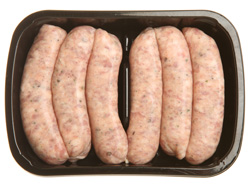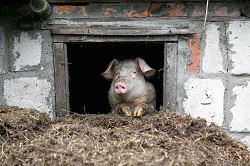Novel plastics technology significantly reduces fossil fuel use
Small and medium-sized enterprises (SMEs) in the food processing business are facing an increasingly competitive European and international market. For those without extensive technological expertise, developing improved food packaging trays with lower environmental impact and costs is a challenge that is difficult to meet. The EU-funded project 'Environmentally-friendly food-packaging tray with lower carbon footprint'(opens in new window) (RPET-FC) brought together five SMEs and three research organisations to address these issues. Scientists developed a tray made from recycled polyethylene terephthalate (rPET) improved in many ways compared to that of the market leader. Investigators developed three different formulations. One is 100 % post-consumer (PC) rPET. One is 85 % PC rPET co-extruded with other materials for improved sealing properties. The third is 85 % PC rPET co-extruded with other components for enhanced gas barrier properties (e.g. up to 70 % lower oxygen gas transmission and 50 % lower water vapour transmission). Further, researchers took the opportunity to assess deposition of a natural antibiotic/antioxidant (Citrox) on the packaging. Trials demonstrated successful antimicrobial activity against a wide range of both Gram (-) and Gram (+) bacteria, including Salmonella, Escherichia coli and Campylobacter. Through the development of novel rPET thermoforming tools and rPET formulations, researchers achieved 75 % faster thermoforming speeds and an improvement in cutting accuracy by 90 %. The trays are also 30 % lighter due to better material distribution. In addition, the design facilitated high-speed stacking, packing and safe transportation of a variety of foods. Taken together, scientists delivered a superior product with significantly lower material usage, waste and energy consumption for a reduction in carbon footprint in excess of 80 %. Considerable interest has already been generated among many leaders in the food industry. According to expressed needs, partners are planning additional investments to move from a niche market to a European market leader in the manufacture of innovative rPET food trays. The patent and knowledge derived from the work will be franchised to thermoforming processors around the world to ensure future demand is met.







